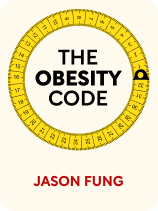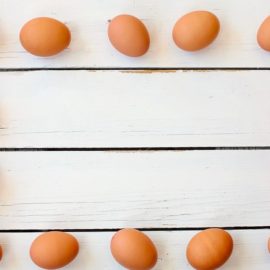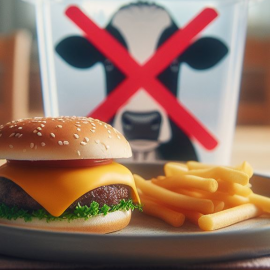

This article is an excerpt from the Shortform book guide to "The Obesity Code" by Jason Fung. Shortform has the world's best summaries and analyses of books you should be reading.
Like this article? Sign up for a free trial here .
Which foods spike insulin the most? How does insulin promote overeating?
Everything you eat causes insulin release, but some foods spike insulin significantly more than others. Processed carbohydrates—specifically wheat and added sugars—cause insulin to spike dramatically, promoting overeating despite lacking nutritional value.
Below, we’ll break down the foods that spike insulin.
1. Processed Carbs
Highly refined carbs are starchy sugars that have been stripped of any fiber, fat, protein, and micronutrients that you’d find in the whole food. (White wheat flour is the prime example.) Because they’ve been processed into a fine powder, the digestive system rapidly absorbs them. This rapid absorption causes a sharp spike in blood glucose levels, which in turn spikes insulin levels. These spikes underlie the development of chronically high insulin levels. Foods that spike insulin the most include things like white bread, snack cakes, crackers, chips, and pastries all have this effect.
In addition to causing insulin spikes, processed carbs encourage overeating. Fung asserts that because refined carbs have been removed from the whole-food context from which they originate, our bodies have no satiety signals associated with them. In other words, they lack the protein, fat, and fiber that help you feel full. This is why you can snack for hours without feeling satiated—refined carbs aren’t filling. Meanwhile, they provide little to no real nutrients.
2. Added Sugars
In addition to the problems found in all processed carbs, Fung explains that added sugars, such as table sugar and high fructose corn syrup, will severely damage your health.
These sugars are dangerous because they contain fructose, a form of sugar that originates from fruits and vegetables. While every cell in the body can use glucose for energy, only the liver can process fructose. When you consume a high amount of fructose, such as from soda or candy, that sugar goes right to your liver. As Fung describes, a high, concentrated amount of fructose quickly overloads your liver, which races to convert it into glucose and fat.
Before long, high fructose consumption causes fatty liver, a condition wherein your liver is overstuffed with fat and sugar. To compensate, your liver becomes insulin resistant, requiring more insulin per unit to continue taking in fructose.
As we’ve explained, insulin resistance contributes to chronically high insulin levels: Resistance leads to increased levels, which leads to more resistance, and so on in a self-reinforcing feedback loop that drives obesity. So added sugars, especially fructose, contribute to obesity. Note that this isn’t a problem of excessive calories, but a problem with the nature of the food.
3. Meat and Dairy
While refined carbohydrates are a main concern, Fung explains that in fact, all foods raise insulin levels. This occurs because of two hormonal mechanisms: the incretin effect and the cephalic phase effect. Put simply, your body releases insulin in anticipation of eating as well as when food reaches your stomach. Proteins stimulate far more insulin release than dietary fats, and vegetable proteins stimulate far less insulin release than meat and dairy. Given this, Fung says that we need to consider the meat and dairy that we eat.
Meat: According to Fung, meat is generally associated with weight gain. One study he cites found that for each additional daily serving of meat, subjects gained one additional pound. Fung speculates that this may be due to the industrial production of meats—that is, animals fed with corn and grains, rather than their natural diets, produce meats that are less healthy for consumption. (Shortform note: Grain-fed beef, for example, does have a higher proportion of saturated fat than grass-fed beef. Additionally, factory-farmed meats are often treated with antibiotics and drugs—in effect, eating grain-fed beef means eating the meat of an unnaturally obese cow. Some believe that this is intuitively unwise, though the science is still out.)
Dairy: In contrast to meat, research finds that dairy products such as whole milk and cheese do not cause weight gain. In fact, large studies found that some dairy products, such as yogurt, may even promote weight loss. Fung suggests that this is because dairy is very filling: While you could eat a pound of chicken, you’d be hard-pressed to eat a pound of cheddar.

———End of Preview———
Like what you just read? Read the rest of the world's best book summary and analysis of Jason Fung's "The Obesity Code" at Shortform .
Here's what you'll find in our full The Obesity Code summary :
- Why everything we were taught about obesity is wrong
- The theory of obesity as a hormonal disorder that causes overeating
- Why dieting doesn’t work and exercise actually has little impact on weight loss






